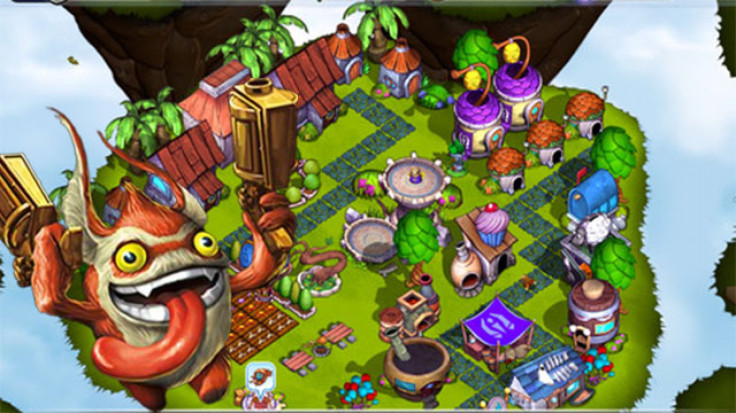Activision Blizzard, Inc. Is Creating Its Own Social Network For Gamers
Known as 'Activate,' the new service could rival GREE and even Apple's game center.

Activision Blizzard, Inc. (Nasdaq:ATVI), publisher of some of the most successful retail video games in recent history such as the “Call of Duty” and “Skylanders,” may finally be feeling the pinch from competitors in social and mobile video games -- at least if its recent releases are any indication.
The Santa Monica, Calif.-based studio has announced two mobile games for Apple Inc.’s (Nasdaq:AAPL) iOS mobile devices, “Skylanders: Lost Islands” and “Skylanders: Battlegrounds,” that will be released with a first-party mobile social gaming platform.
Activision thus joins the likes of the Japanese gaming and mobile app giant GREE (TYO:3632) and the struggling San Francisco-based social game developer Zynga (Nasdaq: ZNGA) in developing its own first-party social networks built around video games.
The strategy makes sense for younger game companies like Zynga that have built their revenue almost entirely on a third-party social network like Facebook Inc. (Nasdaq:FB) only to realize that relying on an unrelated company to support all of your products is a risky endeavor.
GREE Inc., meanwhile, has historically operated in the Japanese marketplace, which is a culture far more mobile-friendly when it comes to digital media (and video games in particular) than what is found in U.S. or European markets. Establishing a universal ecosystem for the company allows it greater control over publishing, development, and consumption alike as the company continues its aggressive westward expansion.
The shift is more surprising for an old guard of the traditional U.S. video game industry like Activision Blizzard, however. While many of its lesser rivals struggle with the decline in console sales and traditional retail markets, the company has continued to push out blockbuster hits, breaking sales records for each successive release of “Call of Duty.” In an interview with the video game magazine Edge for its November 2012 issue, Activision CEO Eric Hirshberg admitted that even though the company was experimenting with new business models like freemium software, he was still wary of jumping on the bandwagon for the “next big thing” in tech too hastily.
“I think there’s a tendency in moments of disruption -- again, I don’t think this is industry-specific -- to assume that everything that’s new will destroy what came before,” he said. “In many cases, the new thing creates a new marketplace and new demand, and then some entrenched and mature markets show remarkable staying power.”
Apparently, the success of its kid-friendly “Skylanders” franchise has taught the company that there are still benefits to experimentation even if entrenched markets can prove their “staying power.” Its first mobile “Skylanders” game was released last April. By September, the game had already been downloaded over a million times according to an interview with VentureBeat.
The new mobile plans also come shortly after Activision announced that it is turning its popular “Call of Duty Elite” service into a freemium counterpart to the core “Call of Duty” games, showing once again that the company realized the potential earnings in attracting a larger user base.
Activision has not released many details about the new Activate service. An important factor that is yet to be determined is whether or not Activision will integrate outside products into Activate itself. If it were to do so, it would pit the company in direct competition with GREE, fellow Japanese mobile game company DeNA (TYO: 2432), and Apple’s own iOS app store.
Activision would also be entering into the social networking fray alongside other major console game publishers such as Electronic Arts (Nasdaq: EA) and Ubisoft (EPA: UBI) and Valve Software’s popular Steam service. EA’s digital distribution platform “Origin” is already available as a mobile version for over 9 million registered users, and Valve released a mobile version of Steam last January.
© Copyright IBTimes 2024. All rights reserved.












